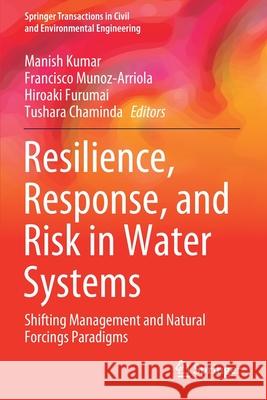Resilience, Response, and Risk in Water Systems: Shifting Management and Natural Forcings Paradigms » książka
topmenu
Resilience, Response, and Risk in Water Systems: Shifting Management and Natural Forcings Paradigms
ISBN-13: 9789811546709 / Angielski / Miękka / 2021 / 395 str.
Resilience, Response, and Risk in Water Systems: Shifting Management and Natural Forcings Paradigms
ISBN-13: 9789811546709 / Angielski / Miękka / 2021 / 395 str.
cena 402,53
(netto: 383,36 VAT: 5%)
Najniższa cena z 30 dni: 385,52
(netto: 383,36 VAT: 5%)
Najniższa cena z 30 dni: 385,52
Termin realizacji zamówienia:
ok. 16-18 dni roboczych.
ok. 16-18 dni roboczych.
Darmowa dostawa!
Kategorie BISAC:
Wydawca:
Springer
Seria wydawnicza:
Język:
Angielski
ISBN-13:
9789811546709
Rok wydania:
2021
Wydanie:
2020
Numer serii:
000775668
Ilość stron:
395
Waga:
0.58 kg
Wymiary:
23.39 x 15.6 x 2.16
Oprawa:
Miękka
Wolumenów:
01
Dodatkowe informacje:
Wydanie ilustrowane











